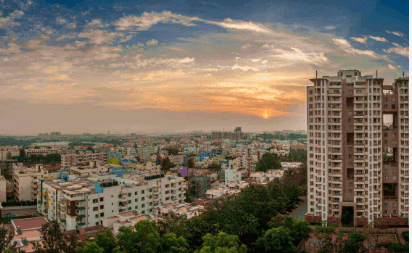In a bid to curb the excessive exploitation of groundwater in Bengaluru, the Karnataka State Pollution Control Board (KSPCB) has rolled out stringent measures, warning developers and homeowners that they must utilize treated water for construction activities to obtain occupancy certificates (OCs) from civic authorities.
The KSPCB’s directive, announced during an interactive session with resident welfare associations (RWAs) and construction industry leaders, stipulates that a ‘no-objection certificate’ (NOC) will not be granted if at least 15% of treated water from sewage treatment plants (STPs) is not utilized during construction processes. This move aims to mitigate the depletion of groundwater levels across Bengaluru and safeguard regular water sources. However, concerns have been raised by construction industry representatives regarding the quality of treated water and its potential impact on cement structures’ strength. In response, scientists from the Indian Institute of Science (IISc) reassured the industry that the use of treated water is safe for construction purposes. They affirmed that a comprehensive study conducted by IISc confirmed the suitability of STP-treated water for construction, emphasizing the need for adherence to quality parameters set by regulatory bodies.
Furthermore, discussions at the event highlighted the importance of separating black water and grey water in apartments to optimize energy usage for STP water segregation. Despite initial confusion stemming from previous orders limiting the transport and use of treated water, stakeholders including the KSPCB, Bangalore Water Supply and Sewerage Board (BWSSB), Bangalore Apartments Federation (BAF), and Outer Ring Road Companies Association (ORRCA) have come together to approve the utilization of 50% of treated water generated by STPs for construction purposes. This regulatory shift not only addresses environmental concerns but also provides a sustainable solution for managing excess water generated by STPs in apartment complexes, thereby contributing to the conservation of water resources in Bengaluru.


